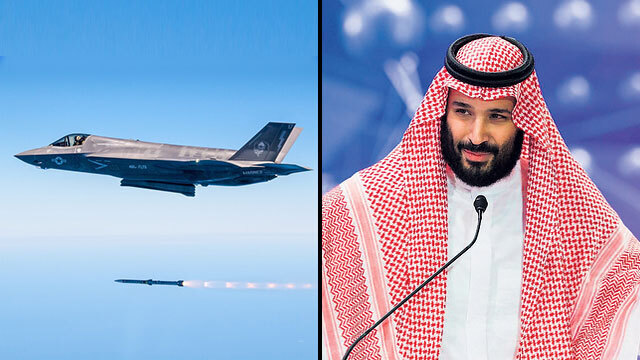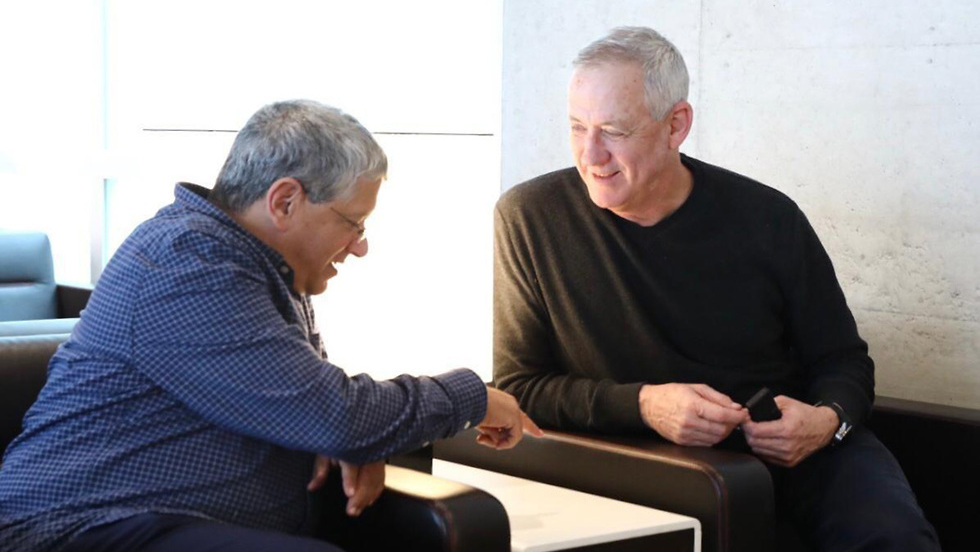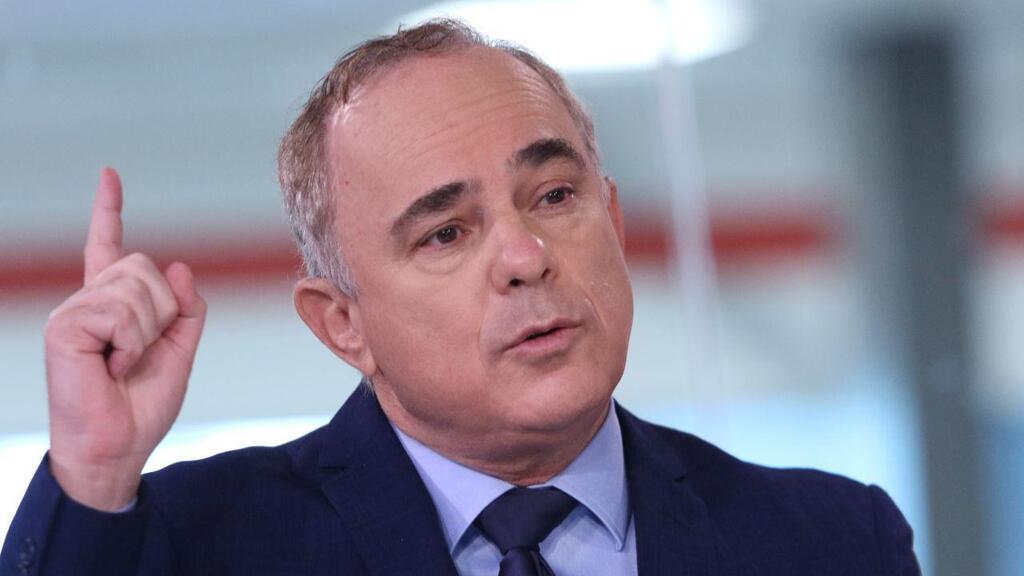Senior defense officials have voiced their concern on Sunday regarding a deal that would see the U.S. sell advanced F-35 stealth jets to Saudi Arabia as part of a potential normalization agreement with Israel.
Their fears come following Energy Minister Yuval Steinitz's interview with Ynet where he said that "if Qatar and Saudi Arabia want F-35s - they will get them sooner or later."
3 View gallery


F-35 warplane; Saudi Arabia's Crown Prince Mohammed bin Salman
(Photo: AP, Lockheed Martin)
"Saudi Arabia, unlike the Emirates, is located only 200 km from Israel's southernmost city of Eilat and we cannot know what will happen in the distant future in terms of strategic twists and turns,” one official said, referring to extreme upheaval in region's countries, such as Egypt - which underwent a coup d’etat in 2011 and again in 2013 - and Syria - which is embroiled in a 9-year civil war.
Two months ago, Defense Minister Benny Gantz and Defense Ministry Director-General Maj. Gen. (res.) Amir Eshel were surprised to find out U.S. officials have agreed to sell F-35s to the United Arab Emirates as part of the normalization agreement with Israel.
The clause was obfuscated by Prime Minister Benjamin Netanyahu, who failed to include the Defense Ministry or the defense establishment in the details of the upcoming normalization agreement with the Gulf state.
Defense Ministry officials rushed to the Pentagon for a hectic marathon of discussions aimed at preserving Israel’s qualitative advantage over the dramatic upgrade that the UAE army will receive. Negotiations with the Pentagon were so sensitive and classified that Gantz was required for two quick visits to Washington, for face-to-face conversations with his U.S. counterparts.
Now, the defense establishment is worried that Netanyahu will negotiate a similar deal with countries such as Saudi Arabia and Qatar without informing the pertinent professional bodies who claim that selling advanced arms to Saudi Arabia or Qatar could have strategic implications in the decades to come.
3 View gallery


Defense Ministry Benny Gantz and the Defense Ministry’s Director-general Maj. Gen. (res.) Amir Eshel
(Photo: Elad Malka)
"Any normalization agreement is good for Israel and the agreement with the United States will maintain Israel's qualitative military advantage for decades to come, relative to the UAE agreement," the sources stressed.
"But such strategic issues require an orderly, professional process. It must not come as a surprise. There are ways to reduce risks and there is a need to involve professional factors who are in charge of the issues because there is a potential for serious mistakes to risk national security."


